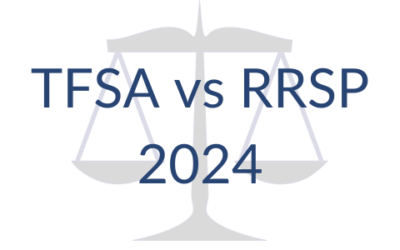Blog
Self Owned vs. Bank Owned Mortgage Insurance
Before buying insurance from your bank to cover your mortgage, please consider your options. What does the insurance cover?
Stay Ahead in 2024: A Comprehensive Checklist for Federal Tax Updates
Explore the upcoming 2024 Canadian tax changes affecting investors, business owners, and high-net-worth individuals. From capital gains adjustments to new incentives, stay informed with our comprehensive checklist.
2024 Federal Budget Highlights
On April 16, 2024, Canada’s Deputy Prime Minister and Finance Minister, Chrystia Freeland, presented the federal budget.
While there are no changes to federal personal or corporate tax rates, the budget introduces:
• An increase in the portion of capital gains subject to tax, rising from 50% to 66.67%, starting June 25, 2024. However, individual gains up to $250,000 annually will retain the 50% rate.
• The lifetime exemption limit for capital gains has been raised to $1.25 million. Additionally, a new one-third inclusion rate is set for up to $2 million in capital gains for entrepreneurs.
• The budget confirms the alternative minimum tax changes planned for January 1, 2024 but lessens their impact on charitable contributions.
• This year’s budget emphasizes making housing more affordable. It provides incentives for building rental properties specifically designed for long-term tenants.
• Introduces new support measures to aid people buying their first homes.
• Costs for specific patents and tech equipment and software can now be written off immediately.
• Canada carbon rebate for small business
Manitoba’s 2024 Budget Highlights
Manitoba’s 2024 budget introduces vital tax changes and credits, including a new Homeowners Affordability Tax Credit and enhanced Fertility Treatment Tax Credit, aiming to support individuals and businesses alike
Tax tips to know before filing your 2023 income tax
Unlock the secrets to maximizing your 2023 tax returns with our essential guide. From the new Advanced Canada Workers Benefit to crucial deductions for families, ensure you’re not leaving money on the table this tax season.
Saskatchewan’s 2024 Budget Highlights
Saskatchewan’s 2024 budget introduces key financial changes, including a delayed small business tax increase and enhanced incentives for tech startups and clean energy. Discover how these updates can impact you.
Retirement Planning
Most of us understand the benefits of sensible retirement planning but when it comes to actually creating your personal retirement strategy and putting it into effect it doesn’t feel quite as straightforward. The reality is that, while there are lots of variables to consider, it isn’t as difficult to create an effective plan for retirement as you may think.
TFSA vs RRSP – 2024
When looking to save money in a tax-efficient manner, Tax-Free Savings Accounts (TFSA) and Registered Retirement Savings Plans (RRSP) can offer significant tax benefits. The main difference between the two is that TFSAs are ideal for short-term goals, such as saving for a down payment on a house or a vacation, as its growth is entirely tax-free, while RRSPs are more suitable for long-term goals such as retirement. When comparing deposit differences, TFSAs have a limit of $7,000 for the current year, while RRSPs have a limit of 18% of your pre-tax income from the previous year, with a maximum limit of $31,560. In terms of withdrawals, TFSAs have no conversion requirements and withdrawals are tax-free, while RRSPs must be converted to a Registered Retirement Income Fund (RRIF) at age 71 and withdrawals are taxed as income.








